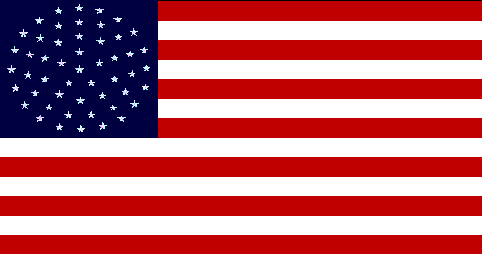James48843
TSP Talk Royalty
- Reaction score
- 907
As you may have heard- another result of Tuesday's voting was a referendum on the future of Puerto Rico.
(Population about 3.7 million)
Voters there were asked a two part question-
First, if they wanted to stay as a United States "Commonwealth", or change ot something else, and then, secondly, if they changed to something else, what would it be.
(See story at: http://www.csmonitor.com/World/Amer...-Rico-really-want-to-become-the-51st-US-state or this one- very good: http://www.cnn.com/2012/11/07/politics/election-puerto-rico/index.html )
For the first time, a majority of voters said they wanted to change to something else. (54%).
-and-
for the first time, a majority of those who wanted to change, declared a desire to pursue U.S. Statehood (61%) for Puerto Rico.
So....what do you think?
PR would formally have to ask, and the U.S. Congress would have to formally approve it.
Should Puerto Rico become our 51st state?
(one possible flag design for 51 states: )

(Population about 3.7 million)
Voters there were asked a two part question-
First, if they wanted to stay as a United States "Commonwealth", or change ot something else, and then, secondly, if they changed to something else, what would it be.
(See story at: http://www.csmonitor.com/World/Amer...-Rico-really-want-to-become-the-51st-US-state or this one- very good: http://www.cnn.com/2012/11/07/politics/election-puerto-rico/index.html )
For the first time, a majority of voters said they wanted to change to something else. (54%).
-and-
for the first time, a majority of those who wanted to change, declared a desire to pursue U.S. Statehood (61%) for Puerto Rico.
So....what do you think?
PR would formally have to ask, and the U.S. Congress would have to formally approve it.
Should Puerto Rico become our 51st state?
(one possible flag design for 51 states: )

